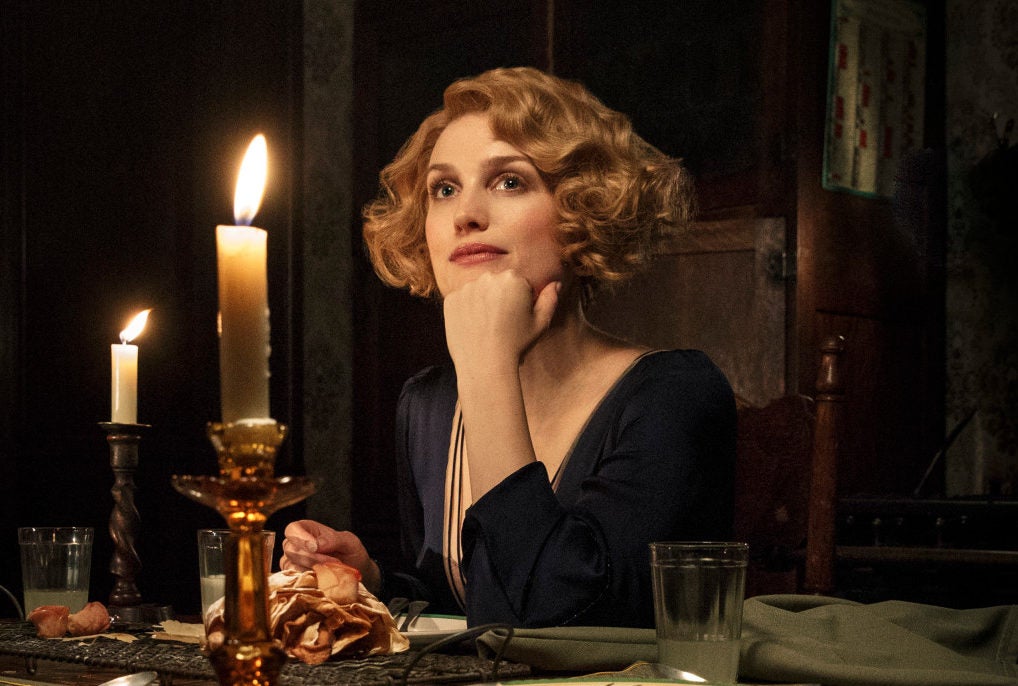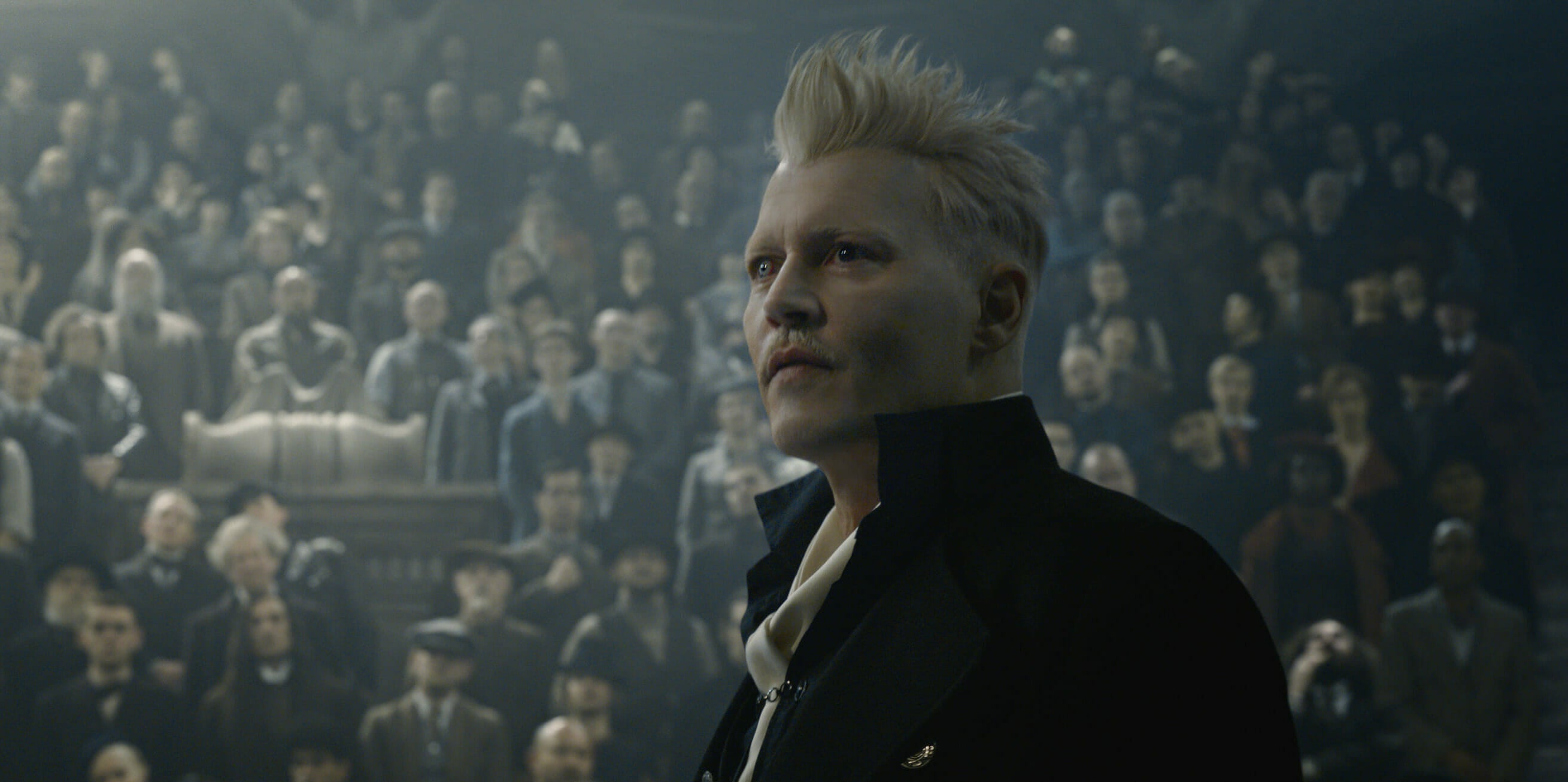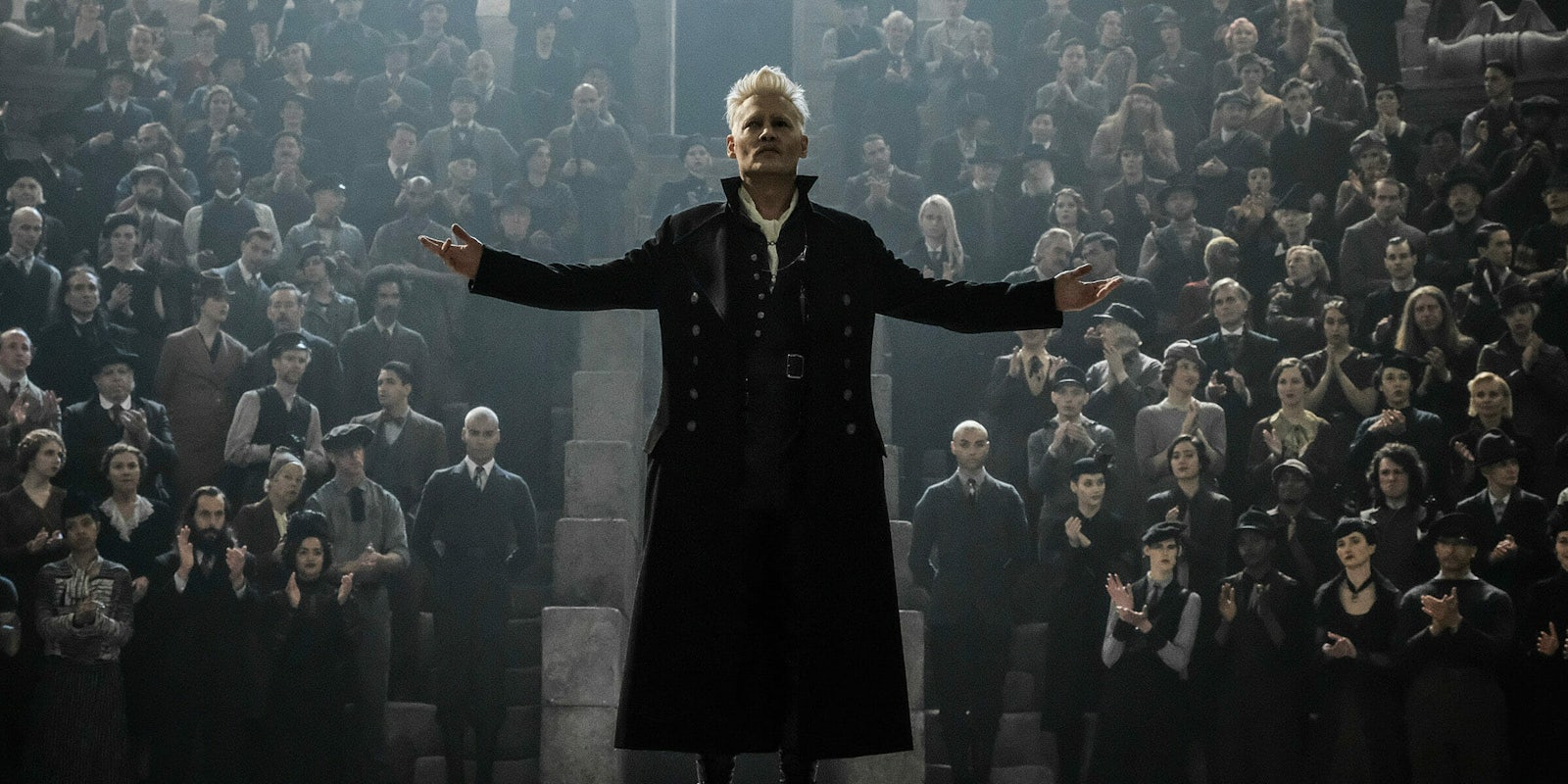There’s a reason why so many people use Harry Potter metaphors to describe our current political climate. In characters like the Malfoys, we see vicious bigotry lurking under a veneer of wealth and status. In the Ministry of Magic, we see authoritarian paranoia pave the way for violent extremism. It’s not hard to see how that reflects reality.
By the age of 15, Harry and his friends have joined an underground resistance cell. Looking back, it’s hard to believe that story was written by the same person as the Fantastic Beasts movies. If anything, The Crimes of Grindelwald is more sympathetic toward people who join the Nazi-analogue villains. At one point Dumbledore advises against deplatforming the dark wizard Grindelwald, and the film’s heroes display little of the moral backbone we saw in Harry and his friends.
Pitched as an allegory for the rise of fascism, the Fantastic Beasts franchise will span 19 years over five movies, covering the rise and fall of Grindelwald. In some ways it’s a similar set-up to the later Harry Potter books: Grindelwald is extravagantly evil, but his wizard-supremacist views overlap with mainstream opinion. The American government enforces segregation between wizards and muggles (including a ban on intermarriage), while the British Ministry of Magic is conservative and misguided, putting Dumbledore under surveillance.
In theory that’s a solid foundation for a pre-WWII allegory, but J.K. Rowling’s views have shifted since the Harry Potter era. Instead of showcasing resistance against evil, The Crimes of Grindelwald focuses on a politically apathetic protagonist (Newt Scamander) and characters who decide to join Grindelwald.
Where are the heroes in Fantastic Beasts?
Shielded by pureblood privilege and blinkered by academic obsession, Newt is an ideal example of a “good person” who can ignore the political turmoil around him. The Crimes of Grindelwald covers his change of heart, as circumstances force him to take sides. However, the film is so muddled that this arc barely registers, overshadowed by a messy subplot about Credence Barebone’s family history. Meanwhile, Newt’s friend Queenie Goldstein joins Grindelwald out of a delusional belief that Grindelwald will let her marry her muggle boyfriend Jacob.

Queenie’s choice is foreshadowed by an earlier scene where she puts Jacob under a mind-control spell, hinting that she never viewed him as an equal anyway. Unfortunately, this idea falters due to clumsy execution. Even if Queenie does hold wizard-supremacist views, she’s otherwise characterized as a kind and empathetic person whose closest family member is an auror. Would she really abandon her sister to join Grindelwald’s band of cold-blooded killers? The film may tell us that Grindelwald is charismatic and persuasive, but we barely see this on-screen. Certainly not enough to warrant Queenie’s overnight change of heart.
When Credence joins Grindelwald, it makes more sense. Angry and alienated, he’s a longterm victim of Grindelwald’s manipulations. But between Credence and Queenie, Rowling spends a lot of time exploring the sympathetic reasons to join Grindelwald. It’s an odd choice of perspective because unlike the Potter books, The Crimes of Grindelwald doesn’t zoom out on the social impact of anti-muggle sentiment. Queenie and Jacob’s star-crossed relationship is our main example of how these ideas harm real people, and their story concludes with Queenie joining a muggle-killing terrorist group. We don’t know how others are suffering or fighting back under similar circumstances.
More insidiously, the film lacks a clear moral stance against Grindelwald. That’s an odd thing to say about a supervillain, but while we know Grindelwald is evil (he does all those crimes, after all), no character explicitly takes a stand against his philosophy. Newt only takes sides after Grindelwald kills his friend, Tina is just following orders, and Dumbledore is understandably conflicted. At this point in the franchise, Grindelwald doesn’t have a true nemesis. Dumbledore basically acts as a free speech advocate for his cause, telling the Ministry that if they break up Grindelwald’s rally, they’ll play straight into his hands. On-screen, that’s exactly how this plays out. When the aurors try to arrest Grindelwald, he uses this moment of political theater as a recruitment tactic.

This is a less-experienced Dumbledore than we saw in Harry Potter; a man whose motives are still clouded by a broken heart. It makes sense for him to be less proactive here than he is against Voldemort. But as a political allegory written during the Trump era, this story sends a depressing message. Instead of showcasing active resistance against fascism, Fantastic Beasts takes a both-sides approach that feels regressive and uninspiring compared to Harry Potter. If you want to see precisely where it went wrong, look no further than Star Wars.
The Star Wars sequel trilogy is a model for what Fantastic Beasts tries and fails to do. The heroes are a tiny group of resistance fighters among a larger population who either don’t care or don’t have the power to rebel. The villains are sadistic and authoritarian, yet Kylo Ren still has deep psychological motives. Finn is a sympathetic figure who, like Newt, wants to avoid the war but ultimately decides to do the right thing. And this all takes place in a family-friendly adventure movie with plenty of humor, maintaining a sense of wonder in a dystopian setting. The Force Awakens delivered a more coherent political and moral message than anything we saw in either Fantastic Beasts movie.
Fantastic Beasts accidentally argues that Grindelwald is right
The final nail in the coffin of Fantastic Beasts’ politics is when Grindelwald namedrops the Holocaust. Conjuring up a vision of the future, he tells his followers that if the muggles continue without magical interference, they’ll start World War II. It’s a twisted version of the “Would you kill baby Hitler?” argument. Obviously, we don’t know if Grindelwald could prevent WWII, but it creates a scenario where, if the good guys win, they’re potentially fighting for the Holocaust to happen. As well as being wildly offensive, this ties into Rowling’s unpleasant view of muggles.
While Rowling paints a sympathetic picture of muggle-born wizards, the only muggles we know personally are the Dursleys (who are small-minded bullies), Voldemort’s father (the victim of a love potion), Credence’s abusive adoptive mother, and Jacob Kowalski. We never meet a heroic or impressive muggle. Jacob is nice enough, but he’s also an ineffectual buffoon. Combine him with Grindelwald’s assertions about WWII, and the Fantastic Beasts movies suggest that muggles aren’t equal to wizards. They effectively imply that Grindelwald was right all along.


